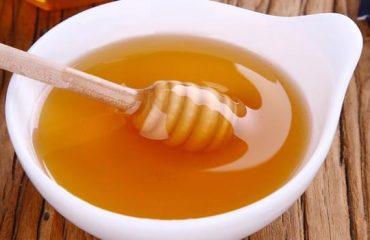Honey, also known as nature’s nectar, bee syrup, or liquid gold, has been cherished for its pure and natural sweetness since ancient times. It’s primarily composed of glucose and fructose, with a touch of sucrose, amino acids, vitamins, minerals, and enzymes. Let’s dive into what happens when someone embraces a long-term relationship with honey!
I. Nutritional Value:
Honey is the result of bees collecting nectar from flowering plants and transforming it into a golden delight. Its key components are glucose and fructose, accompanied by sucrose, amino acids, vitamins, organic acids, minerals, and enzymes. The star nutrients here are glucose, fructose, and those magical enzymes. Glucose can swiftly replenish your energy, while enzymes work their magic in regulating your body functions.
II. The Sweet Benefits:
- Boosts Immunity:
Honey’s mineral-rich goodness and active enzymes promote the proliferation of immune cells. Plus, the sugars and vitamins in honey enhance the activity of these immune cells. So, if your immune system needs a pick-me-up, a glass of honey water is the way to go! - Gentle on the Gut:
Organic acids and active enzymes in honey aid in digestion, making it a stomach’s best friend. Vitamins and minerals in honey also help in balancing your digestive system. Honey, in essence, is a natural lubricant for your digestive tract. - Kiss Goodbye to Fatigue:
The glucose and fructose in honey can quickly boost your blood sugar levels. Since your body relies on blood sugar for energy, sipping honey water can alleviate that racing heart or fatigue caused by low blood sugar. - Beauty from Within:
Honey contains superoxide dismutase and flavonoids, which are antioxidants that not only ramp up your body’s own antioxidant enzymes but also combat those pesky free radicals – the culprits behind pigmentation and aging.
III. The Dark Side:
- A Sweet Path to Obesity:
While glucose and fructose are not easily converted into fat, excessive honey consumption can still lead to obesity. In severe cases, it might even trigger metabolic diseases like diabetes. - Dental Dilemmas:
Honey is primarily sugar, with levels exceeding 70%. If you don’t rinse your mouth after enjoying honey, the residual sugars become a feast for bacteria. These bacteria produce acidic substances that can wreak havoc on your teeth, leading to cavities. - Stomach Troubles:
Honey is slightly acidic and can stimulate the secretion of gastric acid. Drinking honey on an empty stomach may irritate your gastrointestinal mucosa, potentially leading to stomach ulcers. It’s generally advised to wait 1-2 hours after a meal before indulging in honey.
IV. Sip Smartly:
- Timing is Key:
While there’s no strict rule for when to enjoy honey, it’s generally best to avoid it on an empty stomach to prevent potential stomach issues caused by excess acid. - Moderation Matters:
Too much of a good thing can be bad for your health. For adults, daily honey consumption should not exceed 50 grams to prevent unwanted weight gain. - Get Creative:
The simplest and most common way to enjoy honey is by mixing it with warm water. Just make sure the water isn’t hotter than 60°C (around 40°C is ideal). You can also experiment by combining honey with lemon, hawthorn, red dates, milk, and more. - Know Your Limits:
While honey is a nutritional powerhouse, some individuals, such as those with liver cirrhosis, weak digestive systems, or infants under one year old, should steer clear.
Honey is a versatile and delicious addition to your diet, offering a myriad of health benefits. However, like any sweet indulgence, moderation is key. By savoring honey in the right way and at the right times, you can harness its natural goodness while avoiding the pitfalls. So, go ahead, sweeten your life with a touch of liquid gold!




